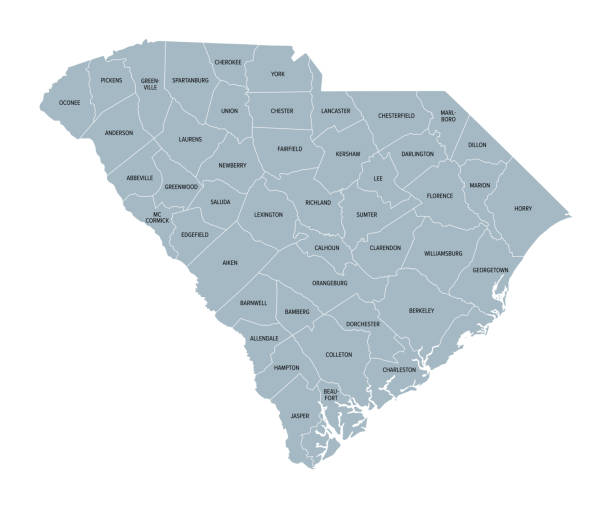Information and tools for localities and organizations
The Center has compiled this non-exhaustive list of resources to help local leaders,  clinicians, planners, and organizations working to address the impact of opioids and addiction in their communities. This includes resources to help with grant writing like SCORF approved strategy information and local data as well as topical information on various strategies.
clinicians, planners, and organizations working to address the impact of opioids and addiction in their communities. This includes resources to help with grant writing like SCORF approved strategy information and local data as well as topical information on various strategies.
If you have created a resource that you would like to be reviewed for inclusion on this page, please email gghiloni@daodas.sc.gov
- SCORF Core Strategies & Approved Uses: The SC Opioid Recovery Fund (SCORF) Board provides a list of core strategies information from the funding sources' legal settlement. This webpage categorizes and lists the allowable strategies for which opioid settlement funds can be used.
- South Carolina Guide to Strategies & Approved Uses: SC's Guide to Approved Uses for Investing Opioid Settlement Funds is a comprehensive overview of core strategies and approved abatement fund uses.
- South Carolina overdose data: SC overdose and related data from Just Plain Killers
- South Carolina treatment system data: View the Center of Excellence's Opioid Treatment data dashboard and individual county profiles on OUD treatment
- Data & Strategy resource list: This detailed list from the COE's Technical Assistance Team includes over 50 links to both data sources and information on specific strategies to support opioid and addiction planning and implementation.
- South Carolina Opioid and Infectious-Disease Related Hospitalization data: This South Carolina dashboard, developed and maintained by Lior Rennert, PhD, at the Clemson University Center for Public Health Modeling and Response, displays predicted hospitalization data by ZIP code. This includes opioid-related hospitalizations, Hepatitis C and HIV hospitalizations, socioeconomic indicators, and healthcare facility locations.
Announcement: Pre-application Meeting for Discretionary Sub-Funding will be held on March 24, 2026 at 10:00 am: Our vision of healthy communities of thriving people is only made possible through strong partnerships. In that essence, SC Opioid Recovery Fund Staff will be hosting a Pre-application Meeting for DSF funding March 24, 2026 at 10:00 am. Attend the Pre-application Meeting to receive information and guidelines on how to complete the application, what is needed to apply—and to receive additional general information. The Pre-application meeting will be held virtually: DSF Pre-application Meeting Link
Please contact Roberta Braneck roberta.braneck@scorf.sc.gov or Matthew Williams matthew.williams@scorf.sc.gov with any questions.
- Hospital Toolkit (2022): The Bridge Blueprint for Hospital Opioid Use Disorder Treatment outlines best practices for hospital EDs to establish a buprenorphine initiation program and connect patients to ongoing care in communities. The nationally-recognized Bridge program began in California as CA Bridge and relies on evidence basis, experienced providers, and program data, and this resource provides an overview of their approach.
- Navigator Toolkit (2022): The Bridge Substance Use Navigation Toolkit provides best practices for navigators working in and/or with EDs to help connect patients to ongoing care in communities.
- Nurse MAT Toolkit (2024): The Bridge MAT Toolkit for Nurses provides detailed information on OUD, treatment with buprenorphine, and how nurses play a critical role in care delivery for ED-based buprenorphine,
- North Carolina Healthcare Foundation Toolkit (2023): The NCHF developed this Emergency Department Buprenorphine Toolkit for NC Hospitals. The toolkit provides real-world guidance on implementing these programs.
- South Carolina data resource: This journal article, Trends in Self-Reported Fentanyl and Other Illicit Substance Use in South Carolina Emergency Department Patients, 2020-2022 was published by COE partners and discusses substances of misuse among ED patients in SC and may be a valuable resource for anyone interested in implementing such a program.
- Snapshot of MUSC's program (2018): https://www.musc.edu/content-hub/news/2018/08/01/musc-pilot-program-shows-success-in-treating-opioid-users
- Prisma Health provider course on MOUD in ED settings: https://academics.prismahealth.org/academics/education/continuing-medical-education/cme-columbia/online-cme-activities-columbia/managing-opioid-use-disorder
- 2026 Atlanta-Carolinas HIDTA Drug Threat Assessment: This report from the High-Intensity Drug Trafficking Area that includes South Carolina details the presence of various substances in our region in drug seizure and overdose data. The report also provides significant information on the context around the presence of those substances and forecasts emerging issues and trends.
- Law-Enforcement Assisted Diversion
- National Sheriff's Association on Jail-Based OUD Treatment
- Treatment across the criminal justice system: This report from the National Academy for State Health Policy, State Strategies to Support OUD Treatment across the Criminal Legal System, outlines opportunities to provide treatment interventions across the Sequential Intercept Model (SIM). The SIM provides a framework from community services and prevention all the way across the continuum to community corrections.
- COE Webinars
- Grief Support for First Responders, Part 1; September 9, 2025, and Part 2; September 23, 2025
- Slide Deck
- Video Recording - Part 1
- Video Recording - Part 2
- Funding and Administering Jail-Based Treatment for OUD in South Carolina; April 10; 12 - 1 pm. (note: this webinar was not recorded)
- Grief Support for First Responders, Part 1; September 9, 2025, and Part 2; September 23, 2025
- Maternal behavioral health treatment and provider support: Information on the Improving Access to Maternal Mental Health and Substance Use Disorder Care Through Telemedicine and Tele-Mentoring (Mom's IMPACTT) project administered by MUSC, including connections to coordinators to provide on-demand mental health treatment and resources for pregnant and postpartum people and real-time psychiatric consultations for providers.
- Perinatal screening and referral to treatment: This outcome study, Text and Telephone Screening and Referral Improved Detection and Treatment of Maternal Mental Health Conditions, on the Listening to Women and Pregnant and Postpartum People program, which showed that participants in this text and phone-based approach are 3.1 times more likely to screen positive, 4.4 times more likely to be referred to treatment, and 5.7 times more likely to attend treatment compared with those assigned to usual office-based in-person screening and referral.
- South Carolina SBIRT Training Tools: This comprehensive set of resources -- including checklists, guides, and videos -- provides tools on SBIRT training that can be used by providers to implement SBIRT in practice.
- SBIRT FAQs: https://scsbirt.com/wp-content/uploads/2018/05/SBIRT-FAQs.pdf
- Federal Resource: SAMHSA information on SBIRT
- Syringe Services: The South Carolina Institute of Medicine and Public Health published this report and one pager, Addressing the Opioid Epidemic and Preventing the Spread of Infectious Disease Through the Provision of Syringe Services Programs, providing background, information, and data on harm reduction services.
- HCV study on reinfection: This article, Hepatitis C Virus Reinfection Among People Who Inject Drugs: Long-Term Follow-Up of the HERO Study was published by COE partners and discusses the rates of reinfection among HCV patients who inject drugs.
- Primer on Harm Reduction: The Johns Hopkins Bloomberg School of Public Health provides this background on what harm reduction services are and how they are delivered.


